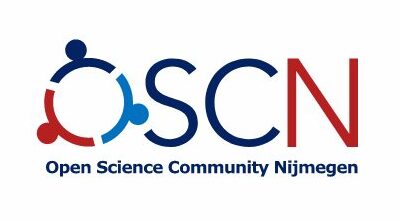Technology
The Ultimate Guide to Understanding OSCN: What You Need to Know

Curious about OSCN and ODCR? These acronyms might sound like alphabet soup, but they hold significant importance in the realm of legal records. Understanding what they entail can empower you with valuable insights into your past encounters with the law.
Delving into the world of OSCN can provide clarity on how court cases are documented and accessed online. Knowledge is power, especially when it comes to managing your digital footprint and ensuring accuracy in public records.
From record removal options to privacy concerns, this guide covers a spectrum of essential information that every individual should be aware of. Stay informed, stay empowered – because knowledge truly is key when it comes to navigating the legal landscape effectively and confidently. Ready to uncover the nuances of OSCN and ODCR? Let’s embark on this enlightening journey together!
Introduction to OSCN and ODCR
Have you ever come across the terms OSCN and ODCR while navigating legal information online? Understanding these acronyms is key to accessing Oklahoma court records efficiently.
OSCN stands for Oklahoma State Courts Network, a centralized portal providing public access to court-related data. It offers a user-friendly platform where individuals can search for cases, view docket details, and access various court documents.
On the other hand, ODCR refers to the Oklahoma District Court Records system. This system plays a crucial role in storing case information from district courts across the state. By familiarizing yourself with both OSCN and ODCR, you can gain valuable insights into legal matters that may impact your life or business.
Exploring these platforms can provide valuable knowledge about past legal proceedings, upcoming court dates, and relevant case updates. As you delve deeper into the world of OSCN and ODCR, you’ll uncover a wealth of information that can help you navigate Oklahoma’s legal landscape with confidence.
Records Removal from OSCN & ODCR
When it comes to managing your online presence, understanding how to remove records from OSCN and ODCR is crucial. Records removal allows individuals to clean up their digital footprint by eliminating certain public records available on these platforms. This process can be especially important for those looking to improve their reputation or protect their privacy.
Knowing the types of records eligible for removal is essential. Typically, non-violent misdemeanors, dismissed charges, and some juvenile offenses may qualify for deletion from OSCN and ODCR databases.
The reasons for removing records from these platforms vary but often include concerns about employment opportunities, housing applications, or simply maintaining personal privacy. By taking action to remove sensitive information, individuals can have more control over how they are perceived online.
Navigating the process of record removal can be complex; consulting legal experts who specialize in this area can provide valuable guidance and support throughout the process.
Types of Records Eligible for Removal
When it comes to the types of records eligible for removal from OSCN and ODCR, certain criteria must be met. Generally, non-violent misdemeanor offenses like minor drug possession or public intoxication may qualify for expungement. Additionally, some low-level felony convictions can also be considered for removal.
Records involving charges that were dismissed, acquitted, or where the individual completed a deferred sentence successfully might be eligible as well. It’s crucial to note that each case is unique and eligibility depends on various factors such as the nature of the offense and time passed since the conviction.
Expunging records related to juvenile offenses or cases sealed by court order are other examples of types of records that could potentially be removed from OSCN and ODCR databases. Understanding these distinctions is essential when seeking to clear your record effectively.
Reasons for Removing OSCN & ODCR Records
Removing OSCN and ODCR records can be essential for individuals seeking to move forward from past legal issues. It allows them a fresh start, free from the burden of their previous mistakes. Whether it’s for employment opportunities or personal reasons, having these records removed can make a significant difference in one’s life.
By eliminating outdated or irrelevant information from OSCN and ODCR, individuals can prevent potential misunderstandings or judgments based on past actions that no longer reflect who they are today. This process helps in promoting fairness and ensuring that people are not unfairly judged based on outdated information.
Moreover, removing these records can also protect privacy and prevent sensitive information from being easily accessible to the public eye. It gives individuals greater control over their personal data and ensures that only relevant and accurate information is available to those who need it.
Relevant Information for Employers and Individuals
When it comes to OSCN and ODCR records, both employers and individuals should be aware of the impact these public records can have. For employers, conducting background checks on potential hires is crucial in making informed decisions. Understanding how to access and interpret OSCN and ODCR information can provide valuable insights into a candidate’s past legal history.
For individuals, being proactive about managing their public records is essential. Knowing what types of records are eligible for removal and the process involved can help protect privacy and reputation. It’s important to stay informed about any outdated or inaccurate information that may appear on OSCN or ODCR reports.
By staying informed and taking necessary steps to manage OSCN and ODCR records, both employers and individuals can navigate the legal landscape more effectively.
Privacy Concerns on OSCN & ODCR
Privacy concerns surrounding OSCN & ODCR are a hot topic in today’s digital age. With personal information easily accessible online, many individuals worry about the implications of having their records readily available on public databases like OSCN. The transparency provided by these platforms can be a double-edged sword, as it raises questions about data security and privacy protection.
Individuals may have valid reasons for wanting to remove certain records from OSCN & ODCR due to privacy concerns or potential reputational harm. It’s crucial to understand the processes involved in record removal and take action accordingly to safeguard one’s personal information.
As technology advances, so do the risks associated with online data exposure. It is essential for individuals to stay informed about their rights regarding privacy on platforms like OSCN & ODCR and take proactive steps towards protecting their sensitive information.
Understanding OUCMS and Court Dockets
Navigating the world of legal documents can be overwhelming, but understanding OUCMS and court dockets is crucial. OUCMS stands for Oklahoma Uniform Case Management System, a centralized database that stores information about court cases in the state. It provides access to case details, schedules, and filings.
Court dockets are essentially calendars or lists of cases awaiting action in a courtroom. They contain essential information like case numbers, parties involved, scheduled hearings, and other important dates. Monitoring these dockets can help individuals stay informed about their own cases or those they are interested in.
By familiarizing yourself with OUCMS and court dockets, you can track the progress of legal matters efficiently. This knowledge empowers individuals to stay updated on proceedings that may impact them directly or indirectly. Whether you’re a party to a case or simply curious about legal processes, understanding these systems is invaluable.
OSCN and ODCR Details
Are you curious about the intricate details of OSCN and ODCR? Let’s dive deeper into what these platforms entail.
OSCN, short for Oklahoma State Courts Network, is a centralized database containing court records from all 77 counties in Oklahoma. This online platform provides public access to case information, including party names, case filings, and judgments.
On the other hand, ODCR stands for Oklahoma District Court Records. It complements OSCN by offering a more comprehensive view of district court cases within the state. Here you can find detailed records of civil and criminal proceedings as well as judgements rendered by district courts.
Both OSCN and ODCR play crucial roles in providing transparency and accessibility to legal information for individuals seeking insights into court cases across Oklahoma. Understanding the nuances of these databases can be valuable when navigating legal matters or conducting research on past cases.
Connecting with Legal Experts
Navigating the legal landscape can be complex and overwhelming at times. When it comes to understanding OSCN and ODCR, seeking guidance from legal experts can make a world of difference. These professionals have the knowledge and experience to help you interpret court records, determine eligibility for record removal, and provide valuable insights into the process.
Connecting with legal experts allows you to access personalized advice tailored to your specific situation. Whether you have questions about privacy concerns on OSCN or need assistance with navigating OUCMS and court dockets, these professionals can offer clarity and peace of mind.
By partnering with legal experts, you gain a deeper understanding of how OSCN works and how it impacts your life. Their expertise can help you make informed decisions regarding record removals or addressing any potential issues that may arise from having records on OSCN or ODCR.
Don’t hesitate to reach out to legal experts for support in understanding OSCN – their guidance can be invaluable in helping you navigate Oklahoma’s legal system with confidence.
About OSCN and its Network
Have you ever wondered about the Oklahoma State Courts Network (OSCN) and its extensive network of resources? OSCN serves as a valuable platform that provides public access to court records, case information, and judicial documents in Oklahoma. This online portal plays a crucial role in promoting transparency and efficiency within the state’s legal system.
OSCN offers users the convenience of accessing court data from various counties across Oklahoma, all in one centralized location. From searching for case details to viewing electronic court filings, OSCN simplifies the process for legal professionals, researchers, and individuals seeking information on cases.
Through its network, OSCN enables users to track ongoing cases, review past judgments, and stay informed about legal proceedings throughout the state. Whether you’re a lawyer preparing for a case or a curious citizen interested in learning more about Oklahoma’s judiciary system, OSCN provides an invaluable resource at your fingertips.
Exploring OSCN’s network can offer insights into how courts operate in different jurisdictions within Oklahoma. By familiarizing yourself with this platform’s capabilities and features…
Impact on Oklahoma’s Legal Landscape
OSCN has undeniably transformed Oklahoma’s legal landscape by providing easy access to court records and case information. This online platform has revolutionized how individuals, employers, and legal professionals interact with the state’s judicial system. By offering transparency and efficiency in accessing public records, OSCN has made significant contributions to promoting accountability and upholding justice within Oklahoma’s legal community.
As OSCN continues to evolve and adapt to technological advancements, its impact on the state’s legal landscape is expected to grow even further. With increased accessibility to court documents and improved user experience, OSCN plays a crucial role in enhancing transparency, accountability, and trust in Oklahoma’s judicial system. Embracing this digital transformation can lead to more informed decisions, streamlined processes, and ultimately contribute to a fairer and more equitable legal environment for all stakeholders involved.
In essence, OSCN serves as a cornerstone of modernizing Oklahoma’s legal landscape by bridging the gap between technology and the law. Its influence resonates across various sectors of society, shaping how we perceive justice delivery systems in today’s digital age. As we navigate these changes together, it is essential to recognize the profound impact that OSCN has had on shaping Oklahoma’s legal framework for years to come.
Technology
LeiaPix Converter: Easy 2D to 3D Conversion

Introduction
In a world where digital visuals are paramount, enhancing your images can make a significant difference. Whether you’re a photographer, digital artist, or marketer, LeiaPix Converter offers an exciting way to turn your flat, 2D images into engaging 3D visuals. Let’s dive into how this innovative tool can transform your creative projects.
What is LeiaPix Converter?
Definition and Purpose
LeiaPix Converter is a groundbreaking web application designed to convert traditional 2D photos into mesmerizing 3D images. By leveraging advanced AI technology, LeiaPix Converter generates depth maps that bring a new dimension to your visuals. This tool is perfect for anyone looking to add depth and dynamism to their images without requiring extensive 3D modeling expertise.

How It Works
LeiaPix Converter uses sophisticated algorithms to analyze the depth and contours of your 2D images. It then creates a depth map, which translates the flat image into a three-dimensional space. This process adds layers of depth, making your photos look more immersive and engaging.
Key Features of LeiaPix Converter
AI Technology
The heart of LeiaPix Converter lies in its use of artificial intelligence. The AI algorithms meticulously scan your images to create accurate depth maps, ensuring that the 3D effect is realistic and captivating.
Depth Map Generation
Depth maps are essential for creating 3D effects. LeiaPix Converter’s advanced depth map generation transforms ordinary images into dynamic 3D visuals by analyzing various depth levels within the image.
User-Friendly Interface
LeiaPix Converter boasts a clean and intuitive interface, making it accessible for both beginners and experienced users. With simple controls and straightforward steps, converting your images to 3D has never been easier.
Benefits of Using LeiaPix Converter
Enhanced Visual Appeal
One of the primary benefits of using LeiaPix Converter is the enhanced visual appeal of your images. The added depth and dimension make your visuals stand out, whether you’re showcasing artwork or promoting a product.
No Need for Advanced 3D Skills
Unlike traditional 3D modeling software, LeiaPix Converter doesn’t require advanced 3D skills. Its AI-driven process simplifies the conversion, allowing you to achieve impressive 3D effects without a steep learning curve.
Free Accessibility
LeiaPix Converter is available for free, making it an excellent tool for users on a budget. You can enjoy the full range of features without any cost, making it a valuable resource for digital creators of all kinds.
How to Use LeiaPix Converter
Step-by-Step Guide
Using LeiaPix Converter is straightforward. Here’s a step-by-step guide to help you get started:
- Upload Your Image: Start by uploading the 2D image you want to convert. LeiaPix Converter supports various file formats, including JPEG and PNG.
- Adjust Settings: Customize the depth settings to your liking. You can adjust parameters such as depth intensity and 3D effect strength to fine-tune the result.
- Download Your 3D Image: Once you’re satisfied with the adjustments, click the “Convert” button. After processing, download your newly created 3D image.
Uploading Your Image
Ensure your image is of high quality for the best results. The clearer the image, the more accurate the depth map will be, leading to a more impressive 3D effect.
Adjusting Settings
Experiment with different settings to find the perfect balance. You can tweak depth levels, shadows, and highlights to match your creative vision.
Downloading Your 3D Image
After conversion, download the 3D image to your device. You can now use it for various applications, from digital art to marketing materials.
Applications of 3D Images
Digital Art
Artists can use LeiaPix Converter to add a new dimension to their work. The 3D effects can make digital art pieces more engaging and visually striking.
Photography
Photographers can enhance their portfolios by turning 2D photos into 3D images. This added depth can make images more captivating and memorable.
Marketing and Social Media
In marketing and social media, eye-catching visuals are crucial. 3D images can draw more attention and increase engagement with your content.
Comparing LeiaPix Converter to Other Tools
LeiaPix vs. Traditional 3D Software
Traditional 3D software often requires extensive training and expertise. In contrast, LeiaPix Converter simplifies the process with its AI-driven approach, making 3D conversion accessible to everyone.
LeiaPix vs. Other AI 3D Converters
While there are other AI-powered 3D converters, LeiaPix stands out for its ease of use and effectiveness. Its depth map generation ensures high-quality 3D results with minimal effort.
Common Issues and Troubleshooting
Image Quality Problems
If your image quality isn’t up to par, ensure it’s high-resolution and clear. Low-quality images may produce subpar 3D effects.
Depth Map Errors
Occasionally, the depth map may not be perfect. Adjust the settings to improve accuracy or try uploading a different image.
Fixing Common Glitches
Restarting the tool or re-uploading the image can often resolve minor glitches. If problems persist, consult the LeiaPix support team for assistance.
Advanced Tips and Tricks
Optimizing Image Quality
For the best results, use high-resolution images. The more detail in your photo, the better the depth map and overall 3D effect.
Using LeiaPix Converter for Different Image Types
Experiment with various types of images, from portraits to landscapes. Each type may require different settings to achieve the best 3D effect.
Combining LeiaPix with Other Tools
You can enhance your 3D images further by combining LeiaPix with other editing tools. Use photo editors to fine-tune details and add finishing touches.
Case Studies and Success Stories
Examples of Stunning Transformations
Many users have achieved impressive results with LeiaPix Converter. From breathtaking digital art to captivating marketing visuals, the possibilities are endless.
User Experiences
User testimonials highlight how LeiaPix Converter has transformed their projects. Whether for personal or professional use, the feedback is overwhelmingly positive.
Conclusion
In summary, LeiaPix Converter is a powerful and accessible tool for transforming 2D images into dynamic 3D visuals. Its AI-driven technology simplifies the process, making it easy for anyone to enhance their images. Whether you’re a digital artist, photographer, or marketer, LeiaPix Converter offers a simple yet effective way to add depth and engagement to your visual content.
FAQs
What file formats does Lei’aPix Converter support?
LeiaPix Converter supports common file formats like JPEG and PNG.
Can Lei’aPix Converter handle high-resolution images?
Yes, Lei’aPix Converter can process high-resolution images to deliver detailed 3D effects.
Is Lei’aPix Converter free to use?
Yes, Lei’aPix Converter is available for free, offering all its features without any cost.
How long does it take to convert an image?
The conversion time depends on the image size and complexity, but it typically takes just a few minutes.
Are there any limitations on image size?
While there’s no strict size limit, very large images may take longer to process. For optimal results, use standard image sizes.
Technology
How Digital Art Ankinsart is Shaping the Future of Artistic Expression

Introduction
Digital art has revolutionized the way we think about creativity and expression. Among the numerous styles and techniques, Digital Art Ankinsart stands out as a leading force shaping the future of artistic expression. This innovative approach blends advanced technology with artistic vision, offering fresh perspectives and redefining traditional boundaries.
What is Digital Art Ankinsart?

Digital Art Ankinsart represents a modern evolution in the world of digital artistry. Rooted in the broader context of digital art, Ankinsart is characterized by its distinctive techniques and methodologies. It encompasses a wide range of styles, each unique in its approach but unified by the use of digital tools.
The Rise of Digital Art
The evolution of digital art can be traced back to the advent of computer technology. From rudimentary pixel art to sophisticated digital masterpieces, the journey has been marked by significant milestones. Technological advancements have played a crucial role, enabling artists to explore new realms of creativity.
Key Features of Ankinsart
Ankinsart is recognized for its unique features that set it apart from traditional digital art. Key aspects include:
- Unique Techniques: Ankinsart employs distinctive methods to create visually striking pieces.
- Tools and Software: Artists utilize advanced software and hardware to bring their visions to life.
How Ankinsart is Transforming Artistic Expression
Digital Art Ankinsart is transforming artistic expression by breaking away from conventional norms. It offers new possibilities, allowing artists to explore uncharted territories and push the boundaries of traditional art forms. This innovation fosters a fresh perspective on creativity and artistic exploration.
The Creative Process Behind Ankinsart
The creation of Ankinsart involves several stages:
- Conceptualization: Artists begin with brainstorming and sketching initial ideas.
- Execution and Refinement: Using digital tools, they bring their concepts to life, refining their work through various iterations.
Case Studies of Notable Ankinsart Works
To understand the impact of Ankinsart, let’s look at some notable examples:
- Example 1: This piece exemplifies Ankinsart’s ability to blend technology with artistry, resulting in a groundbreaking visual experience.
- Example 2: Another significant work that showcases innovations introduced by Ankinsart, influencing the digital art community.
The Role of Technology in Digital Art Ankinsart
Technology is at the heart of Ankinsart. Key elements include:
- Software and Hardware Integration: The seamless combination of digital tools enhances the creative process.
- Impact on Creativity: Advanced technology expands artistic possibilities and allows for greater experimentation.
Challenges and Criticisms of Digital Art
Despite its advancements, digital art faces challenges and criticisms:
- Common Criticisms: Some argue that digital art lacks the authenticity of traditional mediums.
- Overcoming Challenges: Artists continually adapt and innovate to address these critiques and advance the field.
Future Trends in Digital Art Ankinsart
The future of Digital Art Ankinsart is bright, with several trends emerging:
- Emerging Techniques: New methods and technologies will continue to evolve.
- Predictions: Expectations for the future include even more integration of technology and art.
Ankinsart in the Commercial World
Ankinsart is making significant strides in the commercial realm:
- Market Trends: The demand for digital art is growing, with Ankinsart leading the charge.
- Opportunities for Artists: There are increasing opportunities for artists to showcase and monetize their work.
The Influence of Ankinsart on Other Art Forms
Ankinsart’s influence extends beyond digital art:
- Cross-Medium Influences: It has inspired and collaborated with other art forms, creating a rich, interdisciplinary dialogue.
- Collaborative Projects: Joint ventures between Ankinsart and other artistic disciplines highlight its broad impact.
How to Get Started with Digital Art Ankinsart
For those interested in exploring Ankinsart:
- Tools and Resources: Various software and resources are available to help beginners get started.
- Learning and Development: Continuous learning and practice are key to mastering Ankinsart techniques.
Conclusion
Digital Art Ankinsart is not just a style but a movement that is reshaping artistic expression. By merging technology with creativity, it offers new opportunities and challenges traditional notions of art. As we look to the future, Ankinsart promises to be at the forefront of artistic innovation, continually pushing the boundaries of what is possible.
FAQs
What distinguishes Ankinsart from other digi’tal art styles?
Ankinsart is unique due to its specific techniques and integration of advanced digital tools, setting it apart from other digital art forms.
What are some popular tools used in Ankinsart?
Common tools include advanced graphic design software and high-performance tablets, which facilitate intricate and detailed artistic creation.
How has Ankinsart influenced traditional art forms?
Ankinsart has introduced new techniques and concepts that have inspired and blended with traditional art forms, leading to innovative cross-medium works.
What future trends should we expect in digital art?
Emerging trends include increased use of virtual and augmented reality, more interactive art experiences, and continued advancements in digital technology.
Where can I learn more about digi’tal art Ankinsart?
To learn more, explore online courses, tutorials, and forums dedicated to digi’tal art and Ankinsart. Many artists also share insights through their social media and personal websites.
Technology
yPredict: Innovative Predictive Tools for Advanced Traders

Introduction
In today’s fast-paced financial markets, having the edge can make all the difference between success and missed opportunities. Enter yPredict, a groundbreaking platform that merges artificial intelligence and machine learning to deliver sophisticated trading tools. Whether you’re an experienced trader or just starting out, yPredict’s innovative approach offers valuable insights and predictive capabilities that could transform your trading strategies. In this article, we will explore how yPredict stands out, its features, and how it can benefit advanced traders.
What is yPredict?
yPredict is a sophisticated trading research and analysis platform operating on the Polygon network. Designed for serious traders, it uses advanced algorithms to analyze vast amounts of financial data, providing users with predictive tools that can enhance their trading performance. The platform’s focus on AI and machine learning makes it a powerful tool for those looking to gain an edge in the competitive trading landscape.
The Technology Behind yPredict
At the core of yPredict’s innovation are its technological foundations. The platform employs a combination of AI and machine learning to process and analyze financial data. This technology allows for the creation of predictive models that offer actionable insights, helping traders to anticipate market movements and adjust their strategies accordingly.
Key Features of yPredict
1. Advanced Predictive Models: yPredict uses machine learning to develop sophisticated predictive models that can forecast market trends with high accuracy.
2. Real-Time Data Analysis: The platform provides real-time data analysis, enabling traders to make timely decisions based on the most current information.
3. User-Friendly Interface: Despite its advanced technology, yPredict offers an intuitive and easy-to-navigate interface, making it accessible for both novice and experienced traders.
4. Comprehensive Market Coverage: yPredict covers a wide range of financial markets, including stocks, cryptocurrencies, and forex, offering versatile tools for various trading needs.
How yPredict Enhances Trading Strategies
yPredict enhances trading strategies by providing actionable insights derived from its predictive models. Traders can use these insights to identify potential opportunities, minimize risks, and optimize their trading decisions. The platform’s ability to analyze large datasets and generate forecasts helps traders stay ahead of the curve and make data-driven decisions.
Benefits of Using yPredict for Advanced Traders
1. Increased Accuracy: Advanced predictive models improve the accuracy of market forecasts, leading to better trading decisions.
2. Time Efficiency: Real-time data analysis saves time by quickly processing large volumes of information and highlighting key insights.
3. Enhanced Decision-Making: Access to sophisticated tools and predictions helps traders make more informed and strategic decisions.
4. Versatility: yPredict’s broad market coverage allows traders to apply its tools across different financial markets.
Understanding the Polygon Network Integration
yPredict operates on the Polygon network, which is known for its scalability and low transaction costs. This integration ensures that users benefit from fast and efficient data processing, enhancing the overall performance of the platform. Polygon’s infrastructure supports yPredict’s sophisticated algorithms and provides a robust foundation for its predictive tools.
Artificial Intelligence in yPredict
AI is central to yPredict’s functionality. The platform uses AI to analyze historical and real-time data, identify patterns, and generate predictions. This technology enables yPredict to offer insights that are both accurate and actionable, helping traders navigate complex financial markets.
Machine Learning Algorithms
Machine learning algorithms are employed to refine predictive models continuously. By learning from past data and adjusting to new information, these algorithms improve the accuracy of predictions over time. yPredict’s use of machine learning ensures that its tools remain effective and relevant in a dynamic trading environment.
DAO Verification and Its Importance
One of yPredict’s unique features is its DAO (Decentralized Autonomous Organization) verification process. DAO members review and verify the platform’s trading models, ensuring their reliability and accuracy. This decentralized approach adds an extra layer of credibility to yPredict’s predictive tools and fosters trust within the trading community.
Comparing yPredict with Other Trading Platforms
When compared to other trading platforms, yPredict stands out for its advanced use of AI and machine learning. While many platforms offer basic analytics, yPredict’s predictive models and real-time data analysis provide a higher level of insight. Its integration with the Polygon network further distinguishes it by offering faster and more cost-effective transactions.
Real-Life Applications of yPredict
Traders have used yPredict to enhance their strategies across various markets. For instance, cryptocurrency traders utilize its predictive models to forecast price movements, while stock traders use real-time analysis to make timely investment decisions. The platform’s versatility and accuracy have made it a valuable tool for many in the trading community.
How to Get Started with yPredict
Getting started with yPredict is straightforward. Interested traders can sign up on the platform’s website, set up their accounts, and begin exploring its features. The user-friendly interface and comprehensive resources available on the platform make it easy to start leveraging yPredict’s advanced tools.
User Experiences and Testimonials
Many users have reported positive experiences with yPredict, highlighting its effectiveness in enhancing their trading strategies. Testimonials often praise the platform’s accuracy, ease of use, and the value it adds to their trading activities. These user experiences underscore yPredict’s reputation as a leading tool for advanced traders.
Conclusion
The 2024 GNU Gremlin is not just another snowboard; it represents a significant advancement in snowboarding technology. Its unique features, including the retro shape, mid flex, and C3 Aggressive All Terrain Contour, make it a standout choice for advanced riders. By integrating these features into a single board, the Gremlin delivers exceptional performance across various conditions, from powder to icy groomers. Whether you’re an experienced rider or looking to step up your game, the GNU Gremlin offers the tools you need to tackle the mountain with confidence and style.
FAQs
What makes yPredict different from other trading platforms?
yPredict differentiates itself with its advanced use of AI and machine learning, providing sophisticated predictive models and real-time data analysis that other platforms may not offer.
How does yPredict ensure the accuracy of its predictive models?
yPredict’s models are verified by DAO members, adding an extra layer of credibility and ensuring their reliability and accuracy.
Can yPredict be used for different types of trading?
Yes, yPredict covers various financial markets, including stocks, cryptocurrencies, and forex, making it a versatile tool for different trading needs.
What are the benefits of using AI in trading platforms like yPredict?
AI enhances trading platforms by providing accurate predictions, analyzing large datasets quickly, and offering actionable insights that improve trading strategies.
How do I get started with yPredict?
To get started with yPredict, sign up on the platform’s website, set up your account, and explore its features through the user-friendly interface and available resources.
-

 Shops1 year ago
Shops1 year agoPublix Pharmacy Hours and Locations
-

 Shops1 year ago
Shops1 year agoStaples Store Hours: What Time Does Staples Open And Close?
-

 Shops2 years ago
Shops2 years agoWalmart Vision Center Hours
-

 Shops1 year ago
Shops1 year agoWalgreen Pharmacy Hours: What Time Does It Open & Close?
-

 Business2 years ago
Business2 years agoDesigner Clothing: Making a Statement
-

 Entertainment2 years ago
Entertainment2 years agoRoku Red, White, and Blue: Streaming the cultural heart of America
-

 Shops1 year ago
Shops1 year agoWalmart Deli Open & Close Hours
-

 Shops2 years ago
Shops2 years agoKroger Deli Hours & Store Locations
